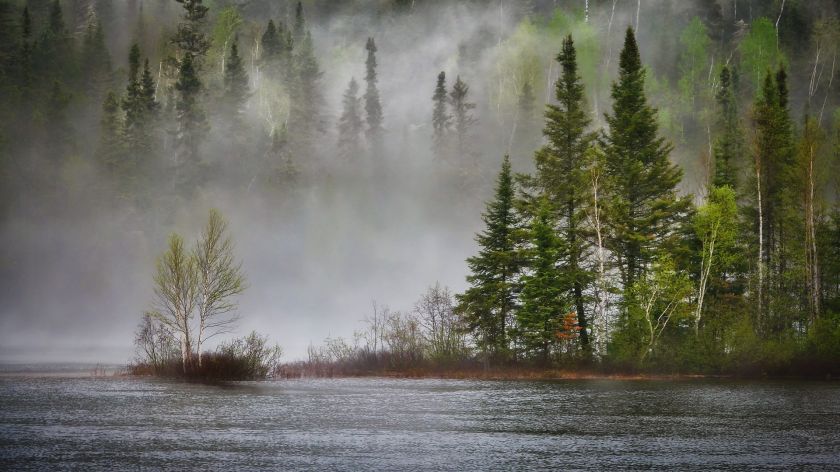-
 Foto: Alain Audet / Pixabay
Foto: Alain Audet / Pixabay
Animal populations around the world are shrinking at an incredible rate, according to an alarming report by the World Wildlife Fund. Biologist Aafke Schipper worked on the report. ‘Every species we can save from extinction is a step in the right direction.’
The Australian sea lion is not doing well. Pups get entangled in fishing gear or other oceanic waste, or they die from diseases, or from hunting, causing the species’ population to decrease by two-thirds between 1977 and 2019.The lowland gorillas of the Congo are even worse off: over 80 percent of the species disappeared between 1994 and 2019 because of hunting. And the increase in fishing means that the pink river dolfin of Amazonas is now also close to extinction.
These are sadly no exceptions according to the Living Planet Report 2022 by the WWF, which was published last night. Since 1970, the population size of fishes, birds, mammals, amphibians, and reptiles has decreased by an average of 69%.
Impact
Through the report, the WWF wants to alert governments, companies, and citizens, as well as motivate them to help repair biodiversity. Radboud University’s Aafke Schippers is one of over a hundred international researchers who worked on the report.
One of the most important conclusions of the report is that climate change and a decrease in biodiversity go hand in hand. Was that not known before?
‘It was, but climate policies and biodiversity policies are still often handled separately. We have now for the first time looked at the impact of all measures taken as a whole.
For that, we did scenario studies. The first scenario has us doing basically nothing: business as usual. That means that a lot of species will go extinct at the current rate. We look at different measures in different scenarios, and how those will affect nature conservation and recovery. From those scenarios we can conclude that we’re nearing an important turning point, after which it will be extraordinarily difficult to restore biodiversity.
According to the report, even in the best-case scenario, biodiversity will decrease for quite a while. Is that unavoidable?
‘It very likely is, yes. It takes time to implement new rules and methods, and it takes time for those to show results. It’s not realistic to think that everything can be solved in a day.’

Right now, there are millions of species on the brink of extinction, many of which will disappear over the coming decades, according to the WWF. Is this, as some scientists claim, the sixth mass extinction?
‘You could say that. If you look at the rate at which species have gone extinct in the past few decades, and then extrapolate, you can see us heading for a new mass extinction.’
Is that bad?
‘I think everyone will have a different answer to that question. I’m mainly concerned with the ethical aspect. As humans, we’re just one of many species on earth, and from an evolutionary point of view we haven’t been around long. How ethical is it that we are consciously dooming so many other species?
‘We don’t know how liveable the planet will be for us in the future’
Mass extinction is also a bad thing when viewed from human self-interest. Humanity has evolved in a certain climate and in conjunction with all the other life on earth. We don’t know how liveable the planet will be for us in the future.’
A returning phrase in the report is ‘we can’t wait any longer’. Climate- and natural scientists have been shouting this for years. Do you think people will listen now?
It’s going to be exciting. There is going to be an important summit on biodiversity in Canada, the so-called Conference of Parties. Hopefully that will lead to binding agreements similar to the Paris Climate Accords. But in that case, the agreements will still need to be executed.’
Report
The WWF report is released every two years and serves as a welfare check for the planet; it shows how nature is doing, what threats there are, and what that means for us humans.
If the earth’s global temperature rises by more than 1.5 degrees, this will have enormous consequences for both humans and nature. But we’re already at 1.2; doesn’t that mean that we have very little leeway left?
‘That’s right. Unfortunately, we’re already very far down the road. There are still scientists who remain optimistic and emphasize that it’s not impossible to stay below 1.5 degrees, but that requires that we drastically speed up our efforts.’
How do you like our odds?
‘I think it’s important that we don’t give up. You sometimes hear people claim that we’re not going to be able to stay below 1.5 degrees, that we might as well give up. But even if we don’t make it, it’s still better to stay below 2 degrees, or 3.
‘For many species it’s not too late’
The same goes for biodiversity. If a species goes extinct worldwide, it is gone forever; it’s an irreversible process. But for many species it’s not too late. A lot can still be recovered at local levels. Anything we can save from extinction is a step in the right direction.’
Translated by Jasper Pesch.




